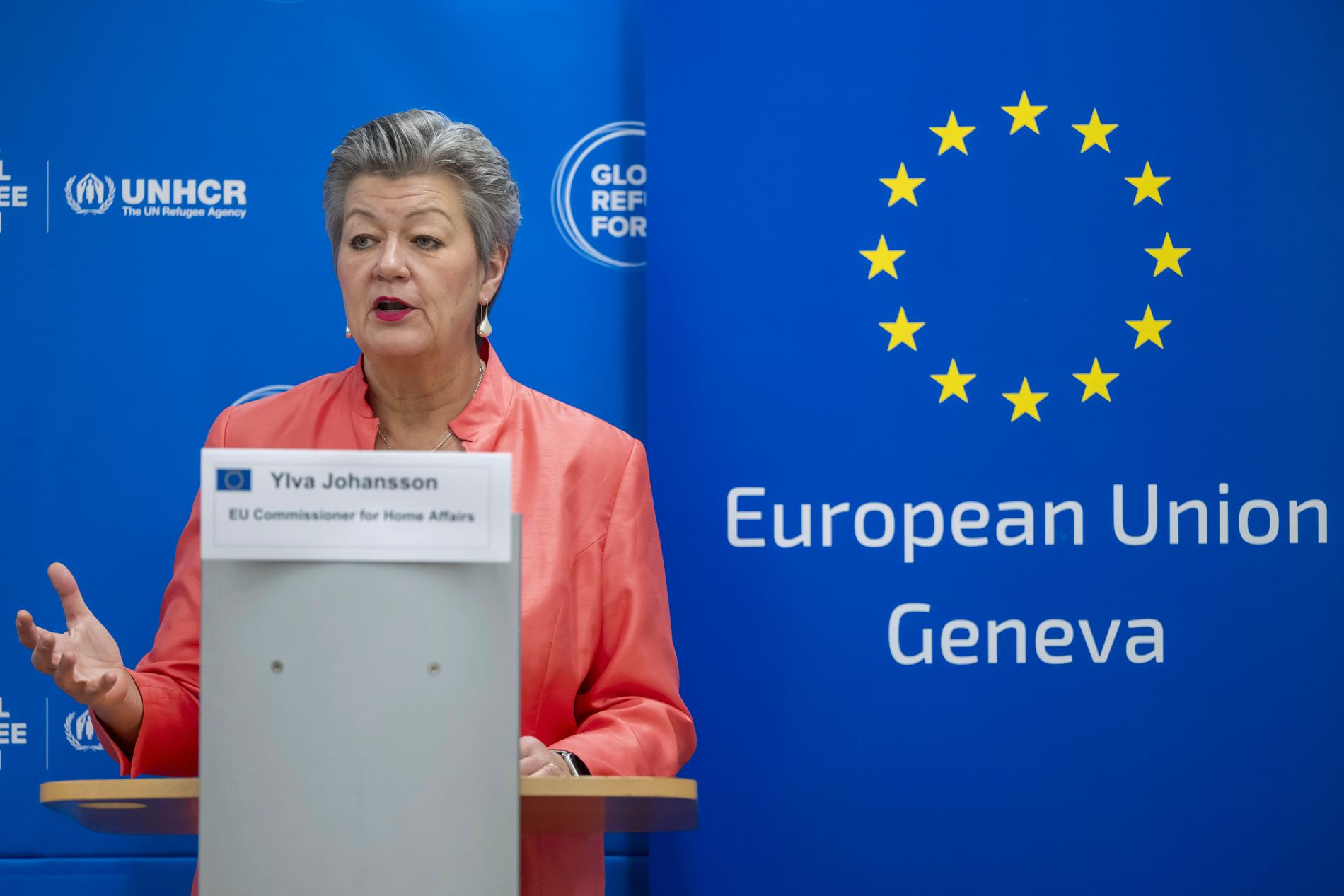Leader
Migration policy
Fortress Europe cannot be the EU's future
Ingvar Persson
Aftonbladet's editorial page is independent social democratic.
Published 4:00 p.m
Quick version
- Swedish EU Commissioner Ylva Johansson highlights the historic breakthrough for a common European migration policy
- Despite the agreement, some EU countries will still be able to avoid accepting refugees, but can instead contribute with money, border guards or deportations.
- Aftonbladet's editorial page does not think that the EU's future can be to become "Fortress Europe".

Swedish EU Commissioner Ylva Johansson describes today's settlement as historic. Photo: Martial Trezzini / AP
People will die despite the migration pact
Swedish EU Commissioner Ylva Johansson calls it a historic success. After two days of intensive negotiations between the governments of the EU countries, the EU Commission and the EU Parliament, there is now an agreement on a European migration policy.
The parliament was also represented by a Swede, the moderate Tomas Tobé.
- This means that we will finally get order in migration policy in Europe, says Ylva Johansson.
Her enthusiasm is understandable.The Migration pact was already at the top of her job description when she took office in 2019. At the time it was described as an impossible task.
Swedish wish
A common European responsibility for migration was also high on the Swedish government's wish list already when Johansson was minister here at home. Regimes such as the Hungarian and the Polish have flatly refused to contribute at all to providing people with protection. And over time, the attitude towards refugees has hardened in several quarters.
Aftonbladet's editorial page this autumn told about the Italian Ventimiglia. People are stuck here, inside the Union but outside all systems.
The need will increase
It is a picture of an order that does not work. The EU needs a common migration policy, and the need will only increase. There is no indication that the number of military conflicts is decreasing and more and more people will be forced to flee climate disasters.
That Ylva Johansson and Tomas Tobé managed to get through a settlement in the union at all is a political achievement. Unfortunately, the price of unity is high. Way too high. It is hard not to think "Fortress Europe".
Refugees must be met by asylum centers at the Union's external border. In plain language, this means that the camps end up in the same countries that now take the greatest responsibility. There, it is intended that the refugees' reasons should be quickly investigated.
It is difficult to see how it should be done legally and without arbitrariness. If you come from a country where the chance of getting asylum is small, you must stay at the border and wait for rejection.
Shared responsibility
The EU countries must share responsibility for those who pass through the eye of the needle at the border. But that does not mean that everyone will accept refugees. Instead, countries should be able to contribute in other ways, with money, border guards or deportations, for example.
Even if the requirements increase somewhat, the EU countries will be able to continue playing Black Peter with the right to asylum.
Furthermore, we have to ask whether today's settlement will really solve any problems. Will fewer people die in the Mediterranean where 17,000 migrants have drowned since 2014? Will today's 355,000 refugees to Europe annually become fewer because of the migration pact?
The answer is probably no to all these questions.
The settlement in Brussels may be historic, but migration policy and the right to asylum will continue to be a contentious issue in the Union. And people will continue to die trying to reach safety.

Inga kommentarer:
Skicka en kommentar